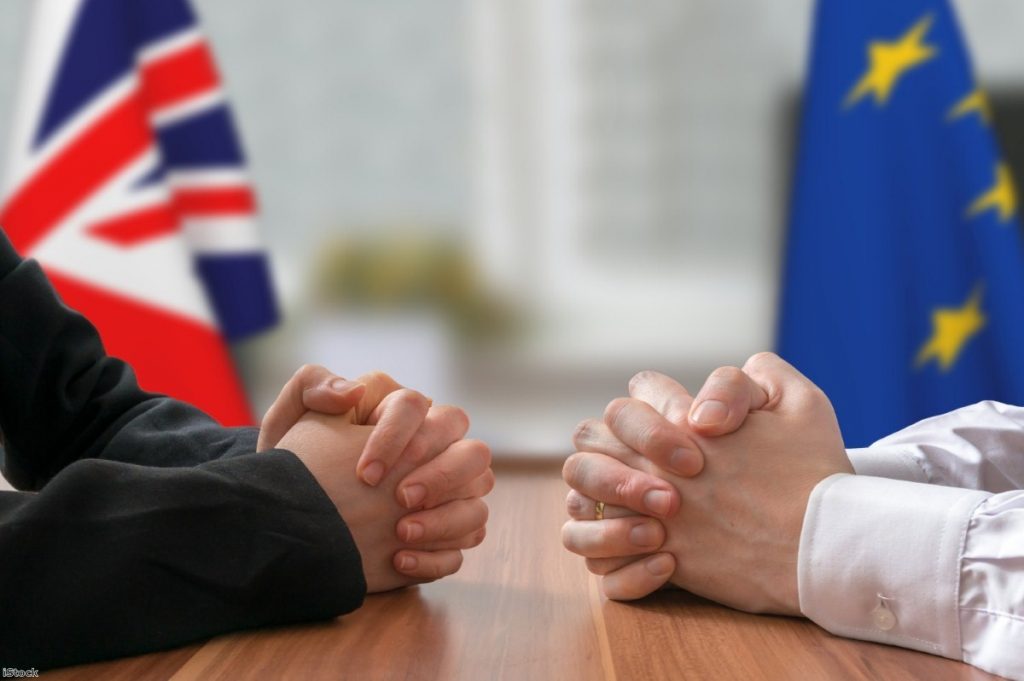By Gurnek Bains
The more information we have, the better our decisions are. We might think we want to buy something – until we find out what it costs. Or we might be attracted by the low price of an item – until we find out that it's cheap because it's poor quality, and not worth having. One thing is certain: keeping the costs secret and trumpeting the benefits is a recipe for poor decision-making.
That's why the release of the government’s own assessment of the impact of Brexit was so important. For the first time, it allowed us to see the cost to the British economy of different types of deal.
No wonder the government didn't want to release it. Because its own verdict is clear: at least in economic terms, the costs of every version of Brexit hugely outweigh the benefits.


The reasons for that are pretty obvious. Leaving the EU means putting up new barriers to trade between ourselves and our neighbours, imposing new costs at the border. In some possible outcomes, it means putting new restrictions on migration to and from the EU, making it harder for firms and public services to recruit the staff they need, and potentially stopping British people from pursuing professional and personal opportunities in Europe. In short, it means closing ourselves off from the world, not opening ourselves up to it.
Of course Brexit has economic benefits too. We can pursue trade deals with the rest of the world independently and we will no longer have to pay EU membership fees. These were two of the big promises of Leave campaigners – especially the one about the cost of EU membership, with the figure of £350 million a week plastered on the side of a bus. We already knew that wasn't true, but the government's analysis shows just how untrue it was. It takes into account the economic benefit of possible new trade deals and of stopping payments to the EU – but it demonstrates that these are overwhelmingly outweighed by the cost of Brexit, to the tune of hundreds of millions of pounds a week.
Now that we know all this, we can ask the public what they think. And that is what Global Future, the think tank of which I am CEO, has done with a poll of over 2,000 people. We showed the broad dimensions of various possible deals – a Norway-style EEA deal, a Canada-style FTA deal, a no-deal Brexit on WTO terms and the government’s preferred outcome, a bespoke deal – to the public, along with the best assessment of the cost to the public finances of each one. And we asked them if each one came at too high a price.
The public's verdict was clear: they hated all of them, by overwhelming margins. Theresa May's preferred deal was the least unpopular – hardly surprising, given that it includes significant benefits which we do not yet know whether the government will even be able to secure. But even on that one, the £615 million per week price tag was judged to be too high by 77% of those polled, including 72% of Leave voters, who were almost as likely as Remainers to think that the deals are not worth the cost.
We asked over 1,000 Leavers whether they thought the four possible Brexit deals were as good as or better than they had hoped for when casting their vote, or worse. Again, the result was overwhelming: more than eight out of ten thought that the Norway-style, Canada-style and no-deal options were worse than they had hoped for, and well over seven out of ten thought that Theresa May's preferred option was worse than they had hoped for too.
Finally, we asked which of the four deals the public would prefer, if forced to pick one of them. More than half (51%) opted for the Norway-style EEA option – the one with the lowest impact on the public finances. Only just over a quarter chose the bespoke deal the government is aiming to achieve. And by a smaller margin, Leave voters preferred the Norway-style deal too. They chose it even though they knew, based on our description, that it would leave Britain still bound by most EU regulations and with no new limits to immigration.
This should not surprise us too much. The government's own figures show that this option – which they, as well as the Labour Party, have already firmly ruled out – is the one with the smallest impact on the public finances.
All forms of Brexit will cost us, but this one will cost us least. When considering the costs and the benefits, it turns out that the public chooses the option with the fewest barriers to trade with the EU, the greatest freedom of movement and the lowest cost. And when shown the alternatives, the public chooses staying in the single market.
Politics is always about trade-offs and all decisions have both positive and negative consequences. This is as true of Brexit, the biggest public policy challenge Britain has faced in a generation, as it is of anything else. But we all have a responsibility to consider both costs and benefits in a clear-sighted way, and to be open with the public about the need to make difficult choices rather than pretending that we can have our cake and eat it. That is why Theresa May should put the EEA option back on the table and it is why she should trust the public with enough information about the choices they face. If she doesn't, she – and we – will have to suffer the consequences of bad decisions.
Gurnek Bains is the CEO of Global Future
The opinions in politics.co.uk's Comment and Analysis section are those of the author and are no reflection of the views of the website or its owners.












